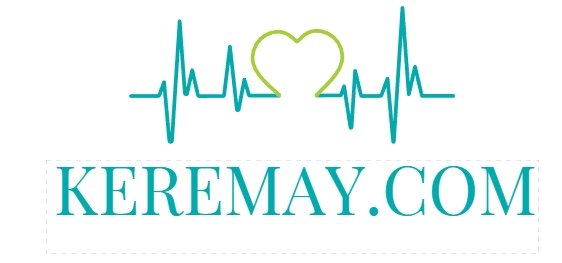It’s no surprise that nutrition plays a crucial role in leading a healthy life. But with numerous trendy diets on the market, it can be overwhelming to know which one is right for you. Fortunately, there’s a way to craft a vibrant and nutrient-dense diet that will benefit your overall health and wellbeing. Read on to learn more about the art of creating a balanced diet for vibrant living.
1. Eating for Vibrant Vitality: Crafting a Balanced Diet
It’s important to eat a balanced diet to ensure you are getting all the nutrients your body needs to sustain vibrant vitality. Eating healthily doesn’t have to be complicated; these five tips will help you feel energized and nourished.
- Choose Variety. Eating different types of healthy foods is essential. This allows you to get all the vitamins, minerals, and fibre your body needs. Include lots of fruits and vegetables, and don’t forget to vary your proteins and grains too.
- Eat Wholesomely. Whenever possible opt for whole food over convenience and prepared food. Things like fresh fruits, veggies, beans, and roots are the best for you. When you do buy prepared food, read the ingredients list; if it’s too intimidating, then it’s not wholesome!
- Load Up On Nutrients. Eating nourishing food is about make sure we’re getting all the vitamins and minerals we need. Eating dark leafy greens, healthy fats, protein, and fibre provide your body with the energy and stamina it needs.
- Hydrate. Staying hydrated is so important to keeping the body functioning optimally. Drink plenty of filtered water, herbal teas, and freshly juiced fruits and vegetables for maximum hydration.
- Eat Mindfully. The most important thing to remember is to listen to our bodies and recognize our own needs. Pay close attention to how you’re feeling before, during, and after eating. It could inspire the changes you need to make to ensure you’re getting the most out of your meals.
Eating for vibrant vitality is easy when you take the time to craft a balanced nutritious diet. Eating more natures bounty and less processed food sets yourself up for success. Ensuring you get the vitamins and minerals your body needs is crucial for feeling energized and healthy.
Once you become mindful of your eating habits, it’s easy to consciously craft a balanced diet that gives your body the nourishment it needs to stay healthy. Use these tips to start feeling your best.
2. Understanding the Benefits of Nutrient-Dense Eating
Nutrient-dense eating is more than just choosing healthy foods. Eating for adequate nutrition means getting the right balance of vitamins, minerals, macronutrients and other compounds that your body needs to perform at its best. Here are some of the main benefits of choosing nutrient-dense foods.
- Improved Health: Nutrient-dense foods are rich in vitamins, minerals, antioxidants, and essential fatty acids that are necessary for a variety of body processes. Eating these types of food provides your body with the nutrients it needs to build muscle, bone, and promote a healthier immune system.
- Increased Energy: Many nutrients found in nutrient-dense foods are essential for helping the body process energy efficiently. Eating foods high in essential vitamins and minerals can help ensure that your body gets the energy it needs to stay sharp and focused throughout the day.
- Managed Weight: Eating nutrition-dense foods can help prevent getting too many calories from low-nutrient foods, like high-sugar snacks. Eating higher quality food can also help keep feelings of fullness longer, making it easier to maintain a healthy weight.
However, it’s important to remember that nutrient-dense eating also means finding balance in your eating patterns. Eating an isolated nutrient – like too much protein or an excessive amount of iron – can actually have the opposite of the desired effect and can cause health problems. Eating too much fat, for instance, can lead to weight gain.
Making the switch to nutrient-dense eating regularly can be hard if you don’t know how to start. But paying attention to both the quantity and quality of what you eat is the key to success. Choosing fresh, unprocessed whole foods that are high in nutrients and low in calories is the best way to make the most of your food intake.
3. Ensuring an Abundance of Essential Vitamins and Minerals
In order to function properly, the body needs a sufficient amount of vitamins and minerals every day. Luckily, the average Western diet is quite diverse and offers an abundance of these essential items. Here are a few ways to make sure you get enough vitamins and minerals into your diet:
- Make sure to include a variety of fruits and vegetables in your diet. Each type of fruit or vegetable contains a unique combination of micronutrients that can have a positive effect on your health.
- Dietary supplements are a great way to make sure you get the recommended daily amounts of certain vitamins and minerals. But be sure to check with your doctor before starting any new supplement.
- Choose lean proteins. Poultry, eggs, beans, and nuts are all good sources of vitamins and minerals.
- Whole grains, such as oats, are full of vitamins, minerals, and antioxidants that can help improve your overall health.
- Avoid processed foods as much as possible. Processed foods tend to have lower levels of essential vitamins and minerals than fresh, whole foods.
Eating a balanced and varied diet is the best way to get enough vitamins and minerals. You should also consider incorporating a few exercise and relaxation activities into your daily routine, as these also contribute to a healthy lifestyle. Remember to consult your doctor if you have any questions or if you are considering taking any supplements.
Vitamins and minerals are important for the proper functioning of the body. By taking the necessary steps to ensure a balanced and varied diet, you can make sure that your body is getting the essential nutrients it needs.
4. Discovering the Power of Plant-Based Eating for Maximum Health
Eating plant-based foods can dramatically benefit your health. Plant-based dieters tend to have lower body weight, blood pressure, and cholesterol than those eating a more traditional diet.
What Can Plant-Based Eating Do For You?
The benefits of a plant-based diet can be far-reaching. These include:
- Increased Energy: A plant-based diet can provide you with an abundance of energy. Plant foods are generally easier to digest than meat, and they are also high in natural vitamins and minerals.
- Weight Loss: Plant-based diets are naturally lower in calories and fat than animal-based diets. People on plant-based diets tend to eat more fiber and less saturated fat, which can help with weight loss.
- Better Digestion: Whole grains, fruits and vegetables are all high in fiber. This helps to keep your digestive system working properly, and also helps to reduce constipation and bloating.
You can even get a good amount of protein from plant-based sources. Beans, legumes and nuts are all great sources of protein that can easily be incorporated into your diet. Protein is important for maintaining muscle and bone mass, so it’s important to make sure you’re getting enough.
How to Get Started on a Plant-Based Diet
If you’re ready to give plant-based eating a try, here are some tips to get you started:
- Start by incorporating more vegetables into your meal. Try adding more vegetables to your favorite dishes, or try a completely plant-based meal for dinner.
- Try out different plant-based proteins. Beans, legumes, and nuts are all great options that can easily be incorporated into your meals.
- Explore new recipes. Search online or pick up a vegetarian or vegan cookbook and have some fun in the kitchen.
No matter where you are starting from, introducing more plant-based options into your diet can provide you with an abundance of health benefits. So go ahead and give it a try!
Your vitality is priceless, and your diet plays a crucial role in helping you achieve a balanced lifestyle. The key to crafting a nutrient-dense diet for vibrant living lies in being intentional about the foods you take in every day. With the right combination of whole foods and essential nutrients, you can be sure to create a diet that serves you and your overall health and gives you the extra spring in your step. So take advantage of the abundance of healthy options, look into different meal plans that will work best for your lifestyle, and keep in mind that when it comes to vibrant living, it starts with a balanced diet.



